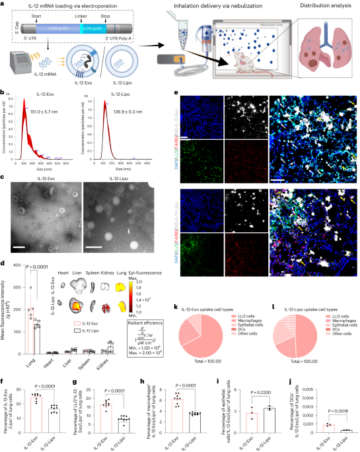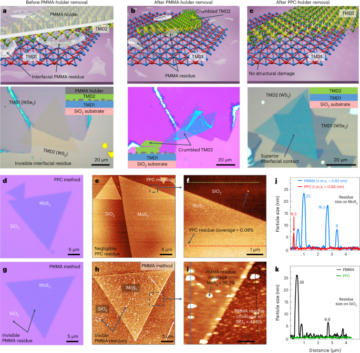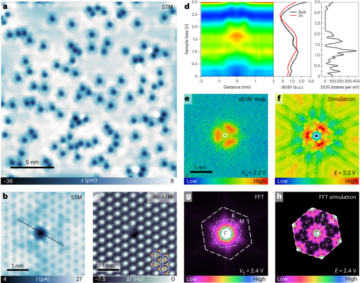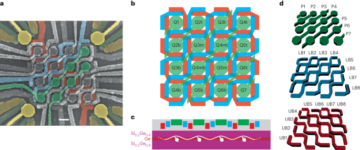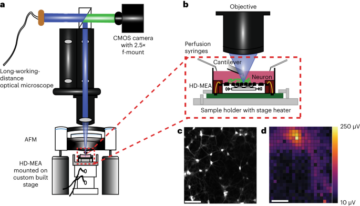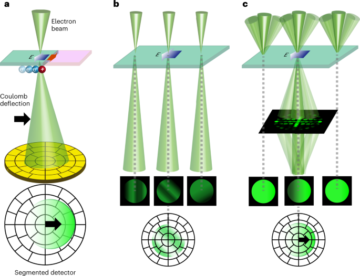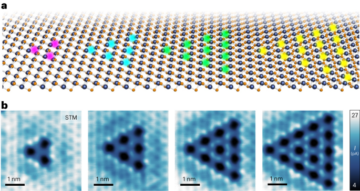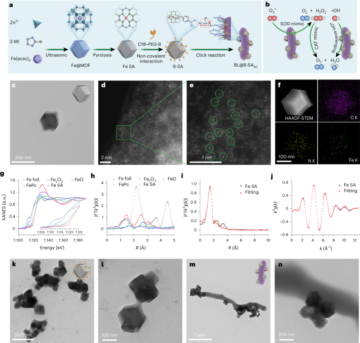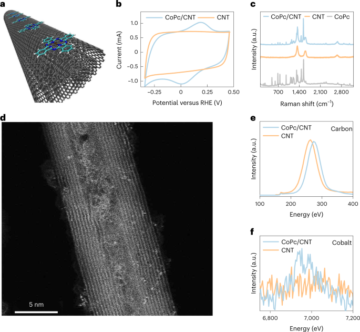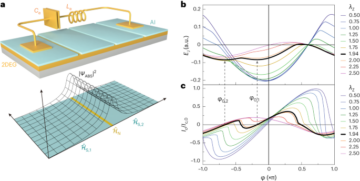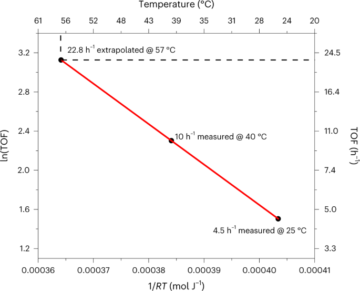A panel discussion at a recent Nature Conference highlighted the role of mentorship programmes to tackle gender disparity in Indian universities.
Last month, Nature Nanotechnology and Nature Communications in partnership with the Manipal Academy of Higher Education (MAHE) — an Institution with Eminence status granted by the Indian Ministry of Education — organized a Nature Conference on Nanomaterials in Biomedical Applications. A clear highlight of the Conference was a panel discussion revolving around the issue of gender disparity in STEM subjects, particularly focusing on India.
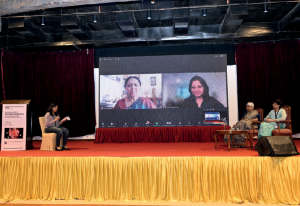
Credit: Audio–visual and photography team of MAHE
Aishwarya Sundaram, senior editor at Nature Communications at the time and an Indian scientist herself, moderated the discussion among four high-calibre panellists working on different aspects of the scientific enterprise. The panellists were: Enakshi Bhattacharya (a physicist at IIT Madras), Sangeeta Kale (a materials scientist working at the Defence Institute of Advanced Technology in Pune), Subhra Priyadarshini (a science journalist for Nature India), and Renu Swarup (a science manager at the Indian Ministry of Science and Technology).
All panellist recognized the remarkable progress that India has made in all aspects of the gender gap issues in the past three decades. According to the official report of the Indian Ministry of Education, there were ~7 female faculty and teachers per 100,000 inhabitants in 2021–22, an increase of 22% since 2014–151. It was remarked how, even 30 years ago, it wasn’t even contemplated that a woman could do certain high-profile jobs — this was especially true in disciplines that were considered ‘of power’, like politics, finance, and engineering.
An ambition of Dr Swarup is that women shouldn’t ask for special reservations; rather, for a level playing field. She remarked to the audience, mostly composed of young researchers, about the importance of developing their own professionalism, because once one is recognized as an expert in a discipline, this will trump discrimination, for the simple reason that managers are looking to maximize performance. As a person working at the top of the scientific chain for the Indian Government, Dr Swarup has always been aware of the problem of women underrepresentation at the highest levels of society, where consequential decisions are made. Instead of advocating for gender quotas at the top, in her opinion bottom-up policies are more effective measures and have a long-lasting effect in society, as a whole. She has put in place a capillary infrastructure to build leadership skills and self-confidence training for women at all levels: schools, universities, and ministry.
To this end, an important aspect of developing inclusive practices is the institutionalization of mentorship programmes, a point strongly emphasized by Dr Priyadarshini. In her view, a mentorship programme should aim to pull out the strengths of the mentee and prepare them for a leadership role. Importantly, though, mentoring can also benefit the mentor, especially when these are more senior individuals. A younger mentee can help the more senior member of the pair navigate new technological tools and embedding them in the new ways of thinking of younger generations — a process called inverse mentorship.
Dr Kale wished to see more peer help. A woman in a topical position can exert tremendous influence and rope up other women by being approachable and acting as a role model for many others aspiring to higher leadership roles. She advocates for a much more capillary network of mutual help and mentorship opportunities. According to Dr Kale, in too many cases women are still unaware of the help they can get from government programmes and end up walking (and struggling) alone. Too many women then get derailed in the process and never get to fulfill their dreams.
Indeed, whereas the percent of women receiving a PhD in STEM is ~35% of the total awardees, only 16% of STEM faculty across 98 Indian universities recently surveyed are women2. There is clearly a problem of a leaky pipeline, as highlighted in a recent study3.
Conciliating family and career needs is a recurring topic in gender panel discussions. This is especially relevant in India, where arranged marriages and an expectation to filling in full family commitments are still present in vast swaths of the society, creating a clash in those also sensing a career-oriented inner calling. A member of the audience shared her experience as a mother who wanted to go back to academia after caring for her kids full-time for an extended period, only to face age discrimination as several programmes come with an age limit. The panel pointed out that this is still true for some government programmes, but that private universities have now largely moved away from this restriction.
Asked what she wished she had known at the beginning of her career, Dr Bhattacharya replied: “I wish I had a mentor”, in an instinctive answer that epitomizes the sore need for career support that is probably still episodic. The benefits of mentoring propagate across generations4. One of the winners of the 2019 Nature Awards for Mentoring in Science, Vidita Vaidya, a neuroscientist at the Tata Institute of Fundamental Research in Mumbai emphasized the long-lasting impact that her mentor had on her and how motivated she was to become a good mentor herself5.
Overall, there was a sense of pride in the panel. Gender disparity in academia is a relevant issue in India, but there was optimism that the steps that have been taken are the beginning of a wave that is inexorably coming.
- SEO Powered Content & PR Distribution. Get Amplified Today.
- PlatoData.Network Vertical Generative Ai. Empower Yourself. Access Here.
- PlatoAiStream. Web3 Intelligence. Knowledge Amplified. Access Here.
- PlatoESG. Carbon, CleanTech, Energy, Environment, Solar, Waste Management. Access Here.
- PlatoHealth. Biotech and Clinical Trials Intelligence. Access Here.
- Source: https://www.nature.com/articles/s41565-024-01643-z
- :has
- :is
- :where
- $UP
- 000
- 1
- 10
- 100
- 2%
- 2017
- 2019
- 2020
- 2022
- 2023
- 24
- 26
- 30
- 300
- 32
- 33
- 36
- 39
- 4
- 40
- 41
- 42
- 5
- 77
- 98
- a
- About
- Academia
- Academy
- According
- across
- acting
- Action
- advanced
- Advanced Technology
- advocates
- advocating
- After
- age
- ago
- aim
- All
- alone
- also
- always
- ambition
- among
- an
- Anchor
- and
- answer
- applications
- approachable
- ARE
- around
- arranged
- AS
- ask
- aspect
- aspects
- aspiring
- At
- audience
- awards
- aware
- away
- back
- because
- become
- been
- Beginning
- being
- benefit
- benefits
- biomedical
- build
- but
- by
- called
- calling
- CAN
- Can Get
- Career
- cases
- certain
- chain
- Clash
- clear
- clearly
- click
- come
- coming
- commitments
- composed
- Conference
- consequential
- considered
- contemplated
- could
- Creating
- credit
- dance
- decades
- decisions
- defence
- Department
- developing
- different
- discipline
- disciplines
- Discrimination
- discussion
- discussions
- disparity
- do
- dr
- dreams
- editor
- Education
- effect
- Effective
- embedding
- emphasized
- end
- Engineering
- Enterprise
- especially
- Ether (ETH)
- Even
- expectation
- experience
- expert
- extended
- Face
- family
- female
- field
- filling
- finance
- focusing
- For
- four
- from
- Fulfill
- full
- fundamental
- gap
- Gender
- generations
- get
- Go
- good
- Government
- granted
- had
- Have
- help
- her
- high-profile
- higher
- Higher education
- highest
- Highlight
- Highlighted
- How
- HTTPS
- i
- IIT Madras
- Impact
- importance
- important
- important aspect
- importantly
- in
- Inclusive
- Increase
- india
- Indian
- indian government
- individuals
- influence
- Infrastructure
- inhabitants
- inner
- instead
- Institute
- Institution
- inverse
- issue
- issues
- IT
- Jobs
- journalist
- kids
- known
- largely
- Leadership
- Level
- levels
- Lewis
- like
- LIMIT
- LINK
- looking
- made
- manager
- Managers
- many
- materials
- Maximize
- measures
- member
- mentor
- mentoring
- Mentorship
- ministry
- model
- Month
- more
- mostly
- mother
- motivated
- moved
- much
- Mumbai
- mutual
- Nanomaterials
- nanotechnology
- Nature
- Navigate
- Need
- needs
- network
- never
- New
- November
- now
- of
- official
- on
- once
- ONE
- only
- Opinion
- opportunities
- Optimism
- Organized
- Other
- Others
- out
- own
- pair
- panel
- panel discussion
- panel discussions
- particularly
- Partnership
- past
- peer
- per
- percent
- performance
- period
- person
- phd
- photography
- physicist
- pipeline
- Place
- plato
- Plato Data Intelligence
- PlatoData
- playing
- Point
- policies
- politics
- position
- practices
- Prepare
- present
- pride
- private
- probably
- Problem
- process
- professionalism
- programme
- programmes
- Progress
- put
- rather
- reason
- receiving
- recent
- recently
- recognized
- recurring
- reference
- relevant
- remarkable
- remarked
- replied
- report
- research
- researchers
- reservations
- Resources
- restriction
- Role
- roles
- s
- Schools
- Science
- Science and Technology
- scientific
- Scientist
- scientists
- see
- senior
- sense
- several
- shared
- she
- should
- Simple
- since
- skills
- Society
- some
- special
- Status
- Stem
- Steps
- Still
- strengths
- strongly
- Struggling
- support
- Survey
- surveyed
- tackle
- taken
- teachers
- team
- technological
- Technology
- that
- The
- their
- Them
- then
- There.
- These
- they
- Thinking
- this
- those
- though?
- three
- time
- to
- too
- tools
- top
- topic
- Total
- Training
- tremendous
- true
- trump
- unaware
- Universities
- Vast
- View
- walking
- wanted
- was
- Wave
- ways
- were
- What
- when
- whereas
- WHO
- whole
- will
- winners
- wish
- with
- woman
- Women
- working
- years
- young
- Younger
- zephyrnet

